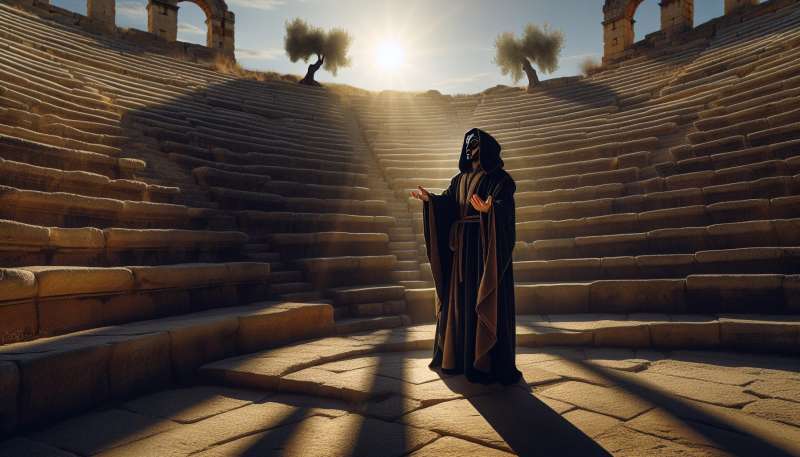
Origin of Greek Tragedy
Greek tragedy evolved from choral performances honoring Dionysus, the god of wine and fertility. Initially a chorus narrated mythic tales, which later incorporated an actor and dialogue, giving birth to the theatrical form.
Mythology's Role in Tragedy
Mythology provided a canvas for Greek tragedies, exploring human conditions through divine narratives. Tragedies often depicted heroes' struggles against fate and the gods' will, reflecting societal values and religious beliefs.
Famous Playwrights' Contributions
Aeschylus, Sophocles, and Euripides were pivotal in adapting myths into tragedies. Aeschylus introduced a second actor, enhancing conflict. Sophocles added a third, expanding plot complexity. Euripides focused on psychological depth.
Tragic Heroes and Hubris
A central theme in Greek tragedy is the tragic hero's fall due to hubris, excessive pride. This concept is deeply tied to mythology, where mortals facing divine retribution for their arrogance became cautionary tales.
Chorus as Mythological Voice
The chorus in Greek tragedies served as a collective character, providing commentary on the mythic events unfolding. They offered societal perspectives, moral judgments, and foresights, bridging the audience with the mythical world.
Impact of Myth on Structure
Mythological narratives influenced the structure of Greek tragedies. The three-part form, including prologue, episode, and exodus, often mirrored the three stages of mythic tales: departure, initiation, and return.
Catharsis through Myth
Aristotle identified catharsis as the emotional purification experienced by the audience. Through the retelling of myths, tragedies allowed viewers to confront profound emotions, from pity to fear, achieving a state of catharsis.Tragedy Inspired Political Reforms
The Athenian leader Solon used the themes of Greek tragedies to inspire and justify significant political reforms in Athens.
What did Greek tragedy evolve from?
Epic poetry recitals
Choral performances for Dionysus
Historical war recounts
Company